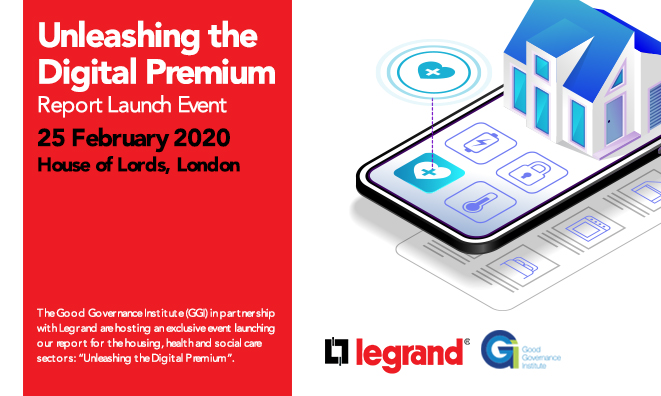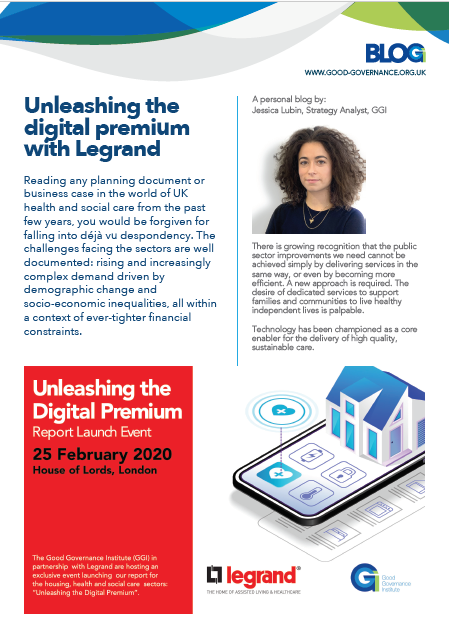Unleashing the digital premium with Legrand
04 February 2020

Reading any planning document or business case in the world of UK health and social care from the past few years, you would be forgiven for falling into déjà vu despondency. The challenges facing the sectors are well documented: rising and increasingly complex demand driven by demographic change and socio-economic inequalities, all within a context of ever-tighter financial constraints.
There is growing recognition that the public sector improvements we need cannot be achieved simply by delivering services in the same way, or even by becoming more efficient. A new approach is required. The desire of dedicated services to support families and communities to live healthy independent lives is palpable.
Technology has been championed as a core enabler for the delivery of high quality, sustainable care. Our ambitions for healthy, lengthy lives for ourselves and our families can be greatly aided by technology and digital services.
The digital premium refers to the potential that digital technology has to deliver more cost effective, efficient and reliable services. It does this by preventing issues in the first place, by offering greater flexibility in the delivery of services, and by giving the recipients of these services more independence for longer.
In partnership with Legrand Assisted Living & Healthcare, GGI has produced Unleashing the Digital Premium a report that reveals areas where the potential exists for digital technology to improve services, and examines the challenges faced by housing, health and social care to realise this potential.
Crucially, this technology is generally already available. The report does not set out a utopian vision; it’s much more of an examination of what is largely possible today. Many of the barriers standing in the way of deploying this kind of transformational technology are systemic, cultural or regulatory rather than technical or financial.
The report identifies system integration across the sectors as one of the crucial areas of opportunity as well as a major challenge. The OECD predicts that health spending is set to outpace GDP growth to 2030. This indicates that the overburdened health sector won’t be able to improve outcomes without cross-sectoral support and cooperation. The report explores some current examples, such as and NHS Digital jointly funded Social Care Innovation Programme.
Our report concludes with five prompt questions for boards, designed to guide discussions about the digital strategic direction of organisations.It is no longer sufficient for these conversations to be taking place within a single department; the possibilities cross all sectors and all functions so teams must work together, perhaps closer than ever before.
We’ll be discussing these topics further at the launch of our report on 25 February, when Mahmood Adil, Medical Director of Information Services Division Scotland, will talk about the future of digital health and Jeremy Porteus, Founder and Managing Director of Housing Lin will speak about digital housing.
The report will be available on our website from 26 February.


